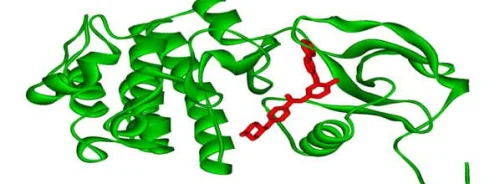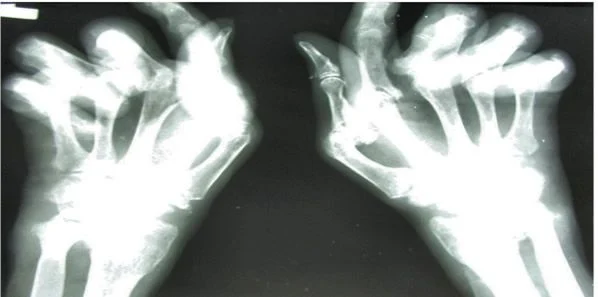Baseline levels of serum interferon in rheumatoid arthritis (RA) patients may help rheumatologists determine who may have a poor response to tumour necrosis factor-alpha inhibitor drugs. This new finding could eventually help rheumatologists determine the best possible options for treating individual patients suffering from RA. The findings were presented at the American College of Rheumatology's Annual Meeting in Boston.
Rheumatoid arthritis is a chronic disease that affects nearly 1.3 million Americans. The disease occurs in women twice as often as men. TNF-alpha inhibitor drugs are used among RA patients but the response to these drugs varies from patient to patient.
A team of researchers at the Mayo Clinic, the Feinstein Institute, the University of Alabama and other institutions examined whether circulating type-I interferon (IFN) levels could possibly predict the treatment response to TNF-alpha inhibitors and other biologic drugs. The goal of the study was to provide rheumatologists information that could help them outline more effective treatment strategies for RA patients.
The researchers studied a group of 32 patients suffering from RA. The findings were validated in an independent group of 80 RA patients. Blood samples from all patients were collected before starting treatment with a TNF-alpha inhibitor.
“We were hoping that a pre-treatment blood test might predict the response to TNF-alpha inhibitor therapy. As a result, this blood test could be used to assist the decision-making process about which drug to use in a particular RA patient,” said Timothy B. Niewold, MD, FACR of the Mayo Clinic in Rochester, Minn., and a lead author on the study.
An increased ratio of IFN-β/IFN-α >1.3 in the patients’ pre-treatment serum sample was associated with a lack of response, while a higher IFN-β/IFN-α ratio was positively correlated with higher Disease Activity Scores. The findings were consistent in both the groups.
No patient with an IFN-β/IFN-α ratio >1.3 achieved a good response to the drugs at 12 weeks of treatment. It was thus safe to conclude that pre-treatment serum interferon levels could predict the patient’s response to TNF-alpha inhibitor therapy.
The study was funded by the Rheumatology Research Foundation and the National Institutes of Health.
Source: Newswise
Image Credit: Wikimedia Commons






